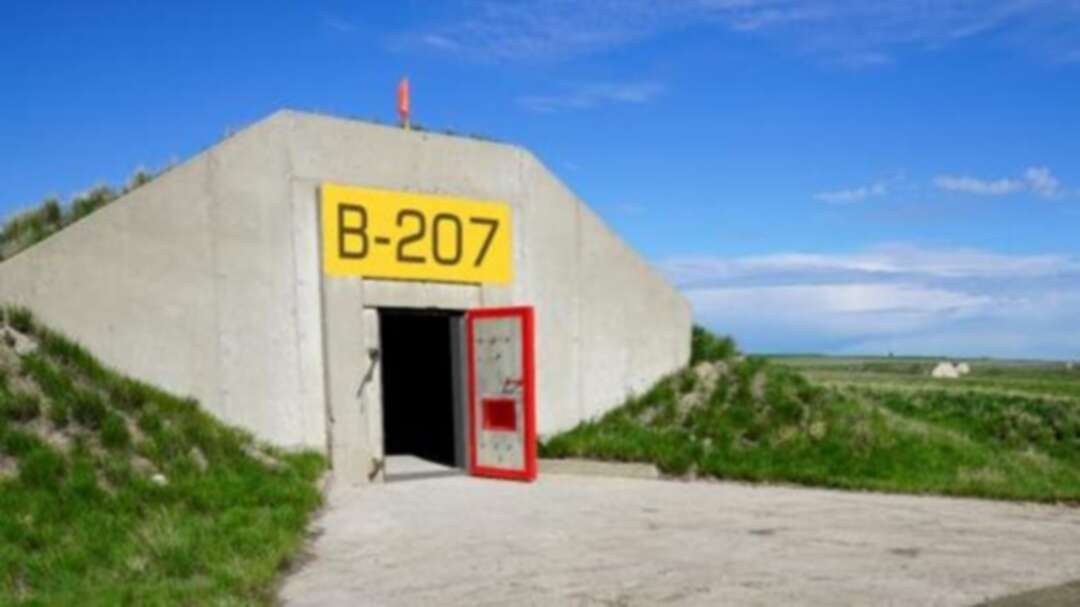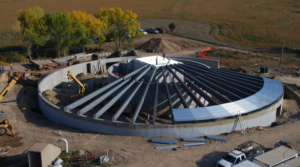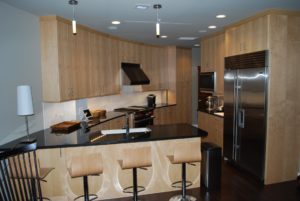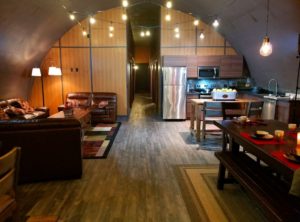-
Coronavirus leads world’s elite to luxury disaster bunkers

The world’s elite are preparing for the worst-case scenario from the coronavirus pandemic by snapping up “survival” real estate in the US, including underground bunkers complete with swimming pools and years of food supplies. world’s
In a secret location in the state of Kansas, a 15-story luxury underground condominium complex has been built for secure “off-grid living in the event of a major disaster or emergency.” That includes coronavirus, technically called COVID-19.
Known as the “Survival Condo” project, its Nuclear, Biological, and Chemical (NBC) air filtration can filter out pathogens like COVID-19.
“We can and do offer an environment where you are less likely to come in contact with the virus,” says Survival Condo on its website. “However, we cannot guarantee that you will not pick up the virus from direct or indirect contact with an infected person or object either before or after you arrive at our facility.”
 An outside view of Survival Condo in Kansas. (Courtesy: Survival Condo)
An outside view of Survival Condo in Kansas. (Courtesy: Survival Condo)The development includes a medical facility, pool, spa, movie theater, gym, rock climbing wall, and a dog park. It claims to be “one of the strongest manmade structures ever created” and is designed to withstand a nuclear blast. world’s
“The same quality of condo in New York would have cost me the same, if not more per square foot and you get peace of mind with this,” a Survival Condo client said according to a company press release.
This “peace of mind” costs $3 million for a full-floor unit and $1.5 million for a half-floor unit. Both units come with a three-year per person food supply.
The complex was previously a missile silo, set up by the American government during the Cold War.
Project developer Larry Hall told American magazine Vanity Fair he has seen a “spike” in inquiries amid the coronavirus pandemic.
 A view inside a full-floor Survival Condo in Kansas. (Courtesy: Survival Condo)
A view inside a full-floor Survival Condo in Kansas. (Courtesy: Survival Condo)Build your own private bunker
Those who can afford it also have the option of constructing their own private underground shelter.
US company Vivos, which builds private underground shelters, has seen a surge in inquiries and sales since the coronavirus outbreak.
“As a result of the current Coronavirus threat and the ripple of subsequent consequences, the demand for Vivos has exponentially grown,” the company’s media director told Al Arabiya English, adding that sales have recently gone up over 400 percent and the clientele “is shifting from middle class to upper class.”
The construction of a new bunker complex can take anywhere between three months to a year depending on the scale, location, and availability of materials and labor.
 An interior view of Vivos xPoint in South Dakota. (Courtesy: Vivos xPoint)
An interior view of Vivos xPoint in South Dakota. (Courtesy: Vivos xPoint)The company also offers space in a “lifesaving shelter” named Vivos xPoint, located in the state of South Dakota. world’s
Formerly an US Army base, Vivos xPoint is now used to host 575 private bunkers that can accommodate more than 5,000 “like-minded survivalists.”
“Vivos xPoint is strategically and centrally located in one of the safest areas of North America,” according to the company’s website.
A private bunker is priced at $35,000 and comes unfurnished. To outfit the bunker, what the company calls “Bunker Glamping,” the price can range anywhere between an extra $25,000 to $75,000.
According to Vivos, each underground shelter complex is capable of caring for the long-term physical and psychological wellbeing of its residents “as they may need to ride out the extreme events that will be happening on the surface above.”
While the spread of the coronavirus has caused many Americans to stay at home, it has motivated the uber wealthy to seek new homes – ones they think will protect them against coronavirus and potential future disasters. LEVANT
source: Emily Judd LEVANT
You May Also Like
Popular Posts
Caricature
BENEFIT Sponsors BuildHer...
- April 23, 2025
BENEFIT, the Kingdom’s innovator and leading company in Fintech and electronic financial transactions service, has sponsored the BuildHer CityHack 2025 Hackathon, a two-day event spearheaded by the College of Engineering and Technology at the Royal University for Women (RUW).
Aimed at secondary school students, the event brought together a distinguished group of academic professionals and technology experts to mentor and inspire young participants.
More than 100 high school students from across the Kingdom of Bahrain took part in the hackathon, which featured an intensive programme of training workshops and hands-on sessions. These activities were tailored to enhance participants’ critical thinking, collaborative problem-solving, and team-building capabilities, while also encouraging the development of practical and sustainable solutions to contemporary challenges using modern technological tools.
BENEFIT’s Chief Executive Mr. Abdulwahed AlJanahi, commented: “Our support for this educational hackathon reflects our long-term strategic vision to nurture the talents of emerging national youth and empower the next generation of accomplished female leaders in technology. By fostering creativity and innovation, we aim to contribute meaningfully to Bahrain’s comprehensive development goals and align with the aspirations outlined in the Kingdom’s Vision 2030—an ambition in which BENEFIT plays a central role.”
Professor Riyadh Yousif Hamzah, President of the Royal University for Women, commented: “This initiative reflects our commitment to advancing women in STEM fields. We're cultivating a generation of creative, solution-driven female leaders who will drive national development. Our partnership with BENEFIT exemplifies the powerful synergy between academia and private sector in supporting educational innovation.”
Hanan Abdulla Hasan, Senior Manager, PR & Communication at BENEFIT, said: “We are honoured to collaborate with RUW in supporting this remarkable technology-focused event. It highlights our commitment to social responsibility, and our ongoing efforts to enhance the digital and innovation capabilities of young Bahraini women and foster their ability to harness technological tools in the service of a smarter, more sustainable future.”
For his part, Dr. Humam ElAgha, Acting Dean of the College of Engineering and Technology at the University, said: “BuildHer CityHack 2025 embodies our hands-on approach to education. By tackling real-world problems through creative thinking and sustainable solutions, we're preparing women to thrive in the knowledge economy – a cornerstone of the University's vision.”
opinion
Report
ads
Newsletter
Subscribe to our mailing list to get the new updates!






















